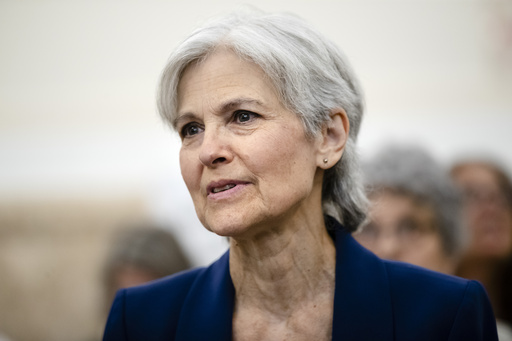A complaint was lodged by a member of the Democratic National Committee on Wednesday, seeking to eliminate the Green Party’s presidential candidate from the ballot in Wisconsin, contending that the party is not eligible to run. This move is part of the DNC’s efforts to block third-party candidates from participating in the election, with similar actions being taken against independent candidate Robert F. Kennedy Jr. in various states. The appearance of the Green Party on the ballot in Wisconsin could be crucial in a swing state where the margin of victory in several recent presidential elections has been relatively narrow, ranging between 5,700 and about 23,000 votes.
The Green Party’s presidential nominee, Jill Stein, is anticipated to be formally selected at the party’s national convention beginning on Thursday. Attempts to reach the Green Party and Stein’s campaign for comments on the complaint were unsuccessful. The Green Party had last fielded Stein in Wisconsin in 2016, where she garnered over 31,000 votes, surpassing Donald Trump’s winning margin of nearly 23,000 votes, a circumstance that led some Democrats to blame Stein for Trump’s victory.
Although the bipartisan elections commission had granted ballot access to the Green Party’s presidential nominee for this year due to the party’s performance in a statewide race in 2022, a DNC member submitted a complaint alleging that the Green Party cannot nominate presidential electors in Wisconsin, thus disqualifying them from having a presidential candidate on the ballot. State law mandates that elector nominees in October must be state officials, including members of the Legislature, judges, or candidates for the Legislature. The complaint argues that the Green Party lacks eligible nominators, making it unable to appoint a slate of presidential electors as mandated by law.
The DNC asserts that the Wisconsin Green Party’s absence of legislative candidates and incumbent officeholders renders them unable to nominate candidates for the ballot in November. The complaint further mentions past challenges to the Green Party’s ballot eligibility, such as the 2020 instance where the party’s presidential candidate was excluded from the ballot by the Wisconsin Supreme Court due to disputes over the filed paperwork. Alongside the Republican, Democratic, and Green parties, the Constitution and Libertarian parties also have ballot access this year. The commission is scheduled to review the eligibility of four independent presidential candidates, including Robert F. Kennedy Jr. and Cornel West, on Aug. 27. The DNC member has requested that the commission consider their complaint during this meeting as well.
In light of the upcoming presidential election and the closely contested race in Wisconsin, efforts are being made by supporters of third-party candidates to potentially impact the outcome through questionable tactics, primarily to the benefit of Trump. Polling data from Marquette University Law School revealed a tight race between Democrat Kamala Harris and Trump in Wisconsin, with Stein polling at around 1% and Kennedy at 6%. The complaint challenging the Green Party’s ballot status in Wisconsin was filed by David Strange, the DNC’s deputy operations director in the state.


